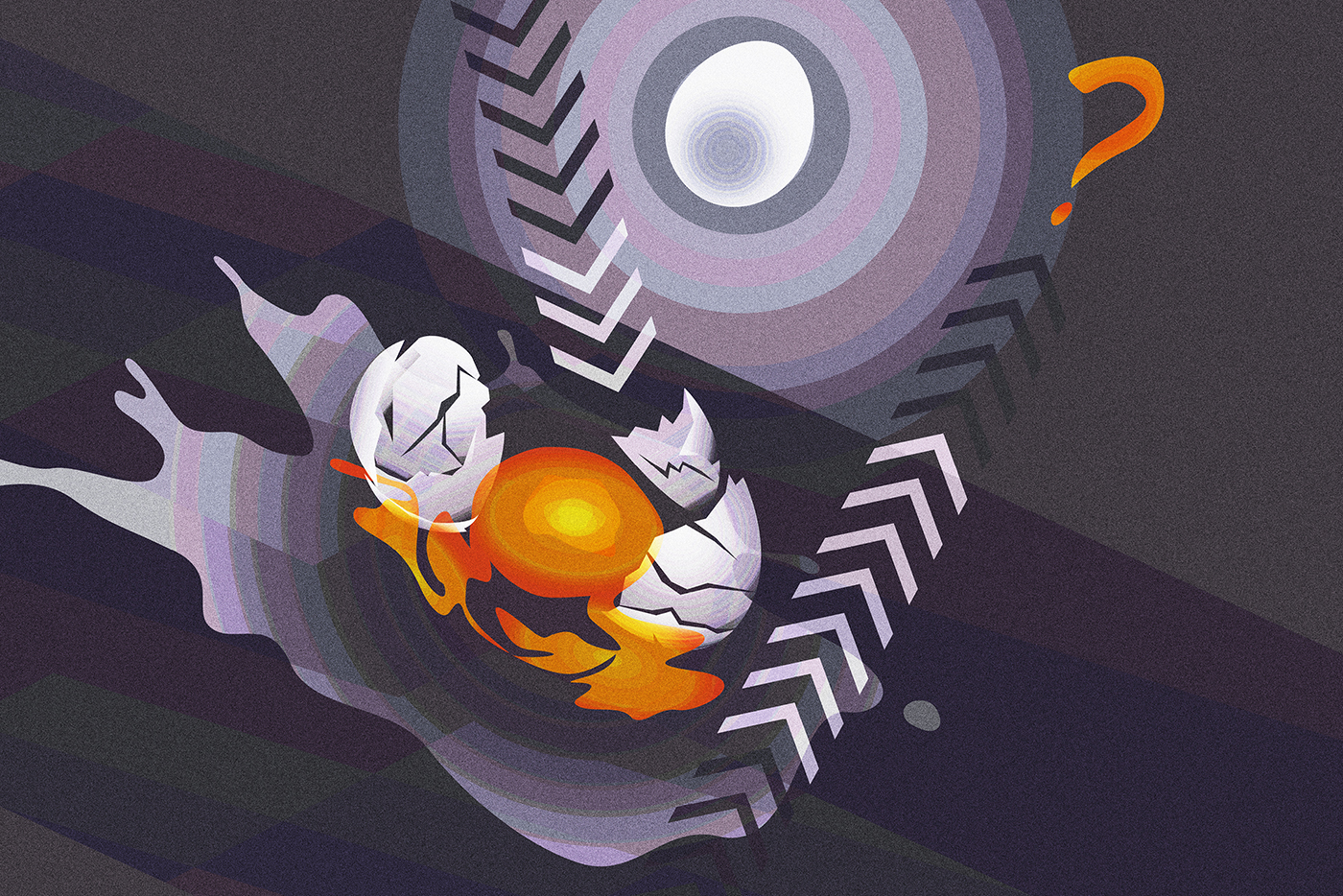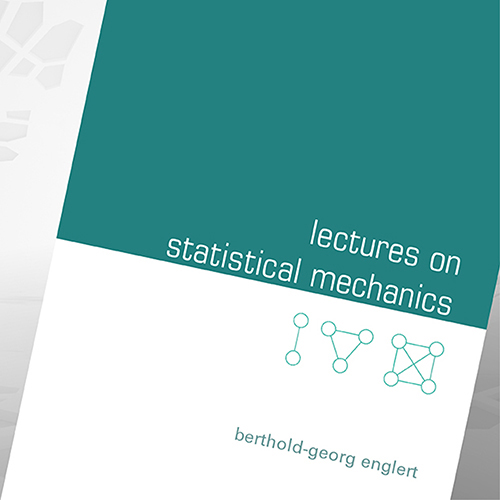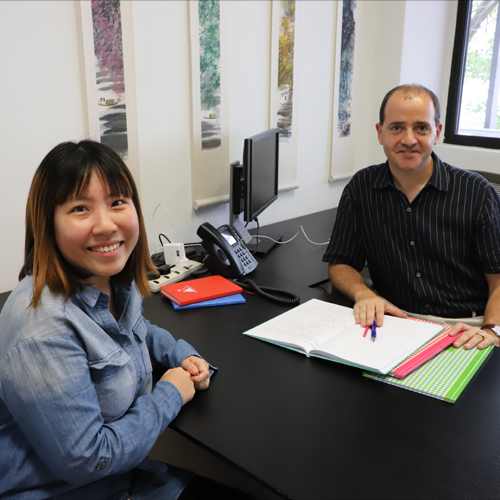Highlights
Logic can replace physics in deriving fluctuation relations
 Consider how an egg shatters on the floor: physics can easily describe the forward process but fares less well describing the reverse. CQT Principal Investigator Valerio Scarani and his collaborator Francesco Buscemi propose defining the reverse process in terms of logical retrodiction instead. Image: Aki Honda / CQT, NUS
Consider how an egg shatters on the floor: physics can easily describe the forward process but fares less well describing the reverse. CQT Principal Investigator Valerio Scarani and his collaborator Francesco Buscemi propose defining the reverse process in terms of logical retrodiction instead. Image: Aki Honda / CQT, NUS
Physics takes a back seat in a new method to construct fluctuation relations proposed by CQT Principal Investigator Valerio Scarani and his collaborator Francesco Buscemi at Nagoya University in Japan. They find they can use a concept known as logical retrodiction instead.
Fluctuation relations are equations comparing the probabilities of forward and reverse processes. They are used in studies of biomolecular systems, thermodynamics, electronics and more. “The usual way to define the reverse process is physical,” says Francesco. “With our method, physics only sets the stage, but the processes acting on the stage are inferred, as Sherlock Holmes would do inspecting a crime scene.” Their work is published on 6 May 2021 in Physical Review E.
The new method hints that logic underlies the physical descriptions and could expand the range of systems that can be analysed with fluctuation relations.
Going backwards
The traditional way to construct fluctuation relations is to describe in detail with physics what happens. This gets tricky, however, for some reverse processes. Consider how an egg shatters on the floor or how milk flows out from a carton: physics can easily describe the forward process but fares less well describing the reverse. It is difficult in the quantum world too, where trajectories are not well defined.
Paradoxically, it proves easier without physics. Valerio and Francesco define the reverse processes in terms of logical retrodiction, which infers past events using present evidence. More specifically, Valerio and Francesco’s logical retrodiction approach uses well known rules in Bayesian statistics.
Bayesian statistics is named after Thomas Bayes, who first described the way of calculating conditional probabilities. Bayesian reasoning involves interpreting probabilities as expressing degrees of belief, or confidence, in an event. It can be viewed as a form of logical reasoning where there is no certainty. Bayesian tools are routinely used to process data and are the core of machine learning.
“Our method is a very systemic recipe that is based on consistent logical reasoning,” says Valerio. “It is not entirely surprising hence that it immediately applies to the quantum world as well.”
The researchers used their method to derive Tasaki’s two-measurement fluctuation theorem for closed driven quantum systems and for general quantum channels. They also showed that classical fluctuation relations, Jarzynski’s equality and Crooks’ fluctuation theorem, were consistent with retrodictive arguments.
The view from logic
Fluctuation relations allow researchers to compare and quantify forward and backward processes mathematically. Curiously, the function or form of fluctuation relations for all processes is ultimately the same. For some measurable variable of the process x, the ratio of the probability of the forward process to the probability of the backward process is a natural exponential of x.
“This logical method is also a great pedagogical expedient to speed up my students’ way into the huge literature about fluctuation relations,” says Francesco. “It is, at least in my eyes, a very powerful tool.”
The method hints that there may be an underlying logical structure to fluctuation relations, but the idea is still in its initial stages.
Nevertheless, the researchers are excited by the possibilities. Since the method does not need physical descriptions, the researchers could also look for fluctuation relations where people have not looked for them before, such as in social or political science.
The study of fluctuation relations is associated with the field of statistical mechanics. Being quantum theorists, Valerio and Francesco were unsure what reaction their paper would receive. “We were very apprehensive that someone would tell us the logical retrodiction approach was known already, or that this has been proved wrong. But strangely enough, everybody is saying that this is new, and for this we are very proud,” Valerio says.
Learn more
Related Stories
 | Volume of lecture notes is CQT Principal Investigator’s eleventh book October 19 2020 |
 | Maxwell’s lesser demon helps new quantum heat engine March 17 2020 |
Better precision from a quantum thermometer November 25 2019 |






